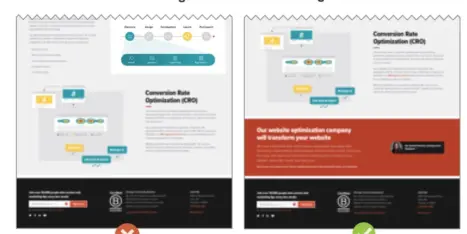Let’s get right to the point. The premise of this post is simple and will probably elicit a big “no duh” from many of you. However, we know from experience that the majority of website buyers do NOT follow this mantra.
Know why you are buying a website before you go to market.
This is a business question about return on investment and real business benefits. Why are you going to spend hard earned money on a website? Before buying a website, see if you can answer yes to all these questions.
-
Are the goals specific enough to drive a decision to select a web partner?
-
Can you measure the success of website based on your goals?
-
Will the goals allow you to get buy-ins from all your internal stakeholders?
-
If you were responsible for this project, would you think the goals are reasonable and achievable?
-
Are your goals are specific, yet not so specific as to eliminate good partners or to limit them?
Based on our observations while selling hundreds of projects to countless more leads, we recommend that you go through these five steps before contacting anyone about a website and definitely before buying a website.
Step 1: Craft a clear message about your goals.
Define exactly why you want a website. Then write a clear, concise explanation of those goals for both internal and external audiences.
Consider how you plan to use your website. What level of service will you need? Do you need ongoing support? What kind of expertise do you need? Do you just need a site built or are you looking for a web partner to get more out of it?
The more direct and tangible the goals, the better. Lead conversions are direct and tangible. These can be measured and tracked. Don’t overlook the direct, intangible goals, though.
You want visitors to make a buying decision based on the professional image of your website. Be realistic and realize that often a website can only play a supporting role in many ways. The website will support the brand, but alone it does not make or break the brand.
Step 2: Get buy-in and support for the goals.
Figure out your key stakeholders, and get their input on the goals. Don’t make it a consensus decision-making process, but use it as a way to refine your goals and to get others on board.
Talk to the ultimate decision maker early in the process. It’s odd how often we see them first learn about the project goals at a kick-off meeting. Don’t forget to talk to IT and legal. They have lots of opinions and often come in at the 11th hour and either kill or delay getting a deal done.
Step 3: Allocate the proper resources.
Web projects take significant effort, and you can’t outsource all the work to a web development firm. You must be engaged in the upfront requirements definition, the strategy, and the project.
The biggest client oversight is not allocating enough resources to get the content ready for the new site. Start planning the content early and figure out who’s going to find the photos, get the testimonials, write the content, edit the content, and approve it.
Step 4: Set everyone up to use the website goals to drive your decisions.
Talk to your key stakeholders, especially the decision maker, and agree that you’ll base all decisions relative to the goals. Discuss selecting a web development company and use the goals to overcome those wacky, curveball objections.
Talk about how potential risks during the the project can be addressed by focusing on the goals before they become issues.
Step 5: Write an RFP… and then delete 90% of it.
Or just write the 10% that matters. We see lots of RFPs, and we’d say most do not achieve the desired impact for selecting a web developer.
- RFPs scare off good partners. Good partners are busy and must quickly qualify the best leads. The odds of success are lower with RFPs, so they don’t even respond.
- RFPs limit good dialogue that leads to creative solutions.
- Small requirements (e.g., CMS preference, launch dates) in RFPs eliminate good partners unintentionally.
- RFPs ask for unnecessary features that won’t meet your goals.
Our recommendation?
Document your goals, define a budget range, and determine any deadlines. Then do a good web search, and get some referrals to create a short list of web partners. Have a nice old-fashioned conversation with them about your goals, budget, and deadlines.
Do you have any advice on the best way to define business goals? Are there any other tips for buying a website that you’d like to share? We’d love to hear it in the comments below.




